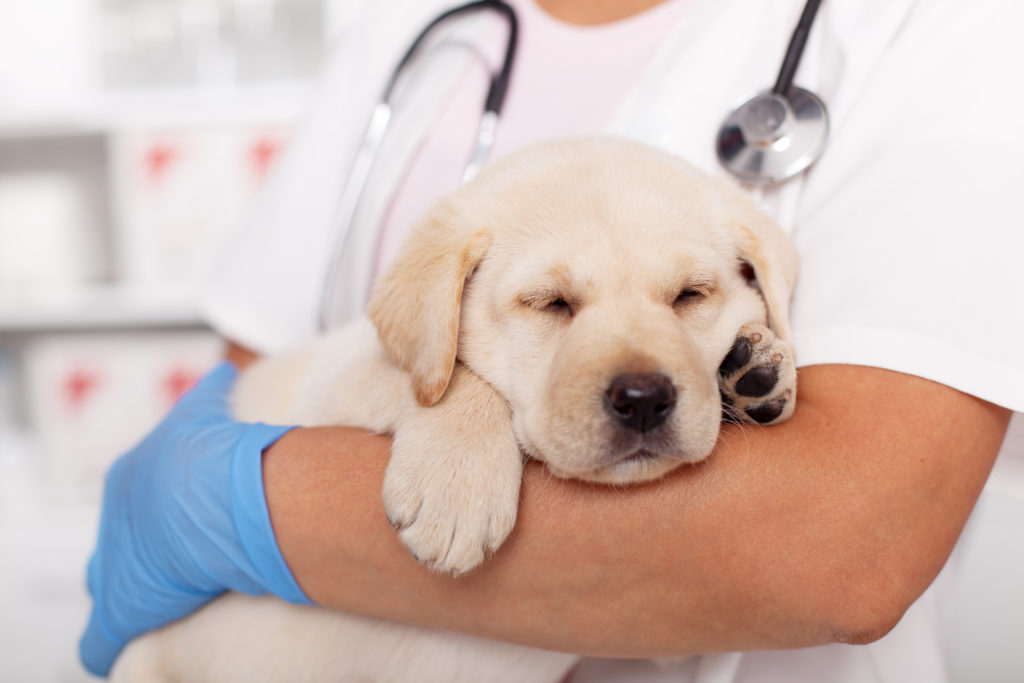
The Cost of Dog Ownership
“Oh, how much, oh how much, for the puppy in the window?”
It’s easy to relate to these popular song lyrics, especially on National Puppy Day which falls on March 23rd.
We have all had that experience where we “oooh” and “aaahhhh” at those precious puppy eyes that seem to be staring straight into our soul and are saying “TAKE ME HOME!”
That little puppy face and puppy breath may be one of the hardest things to resist in life. While there is no doubt that a puppy will grow to become your most loyal friend, you need to be aware of the expense that comes with owning a dog.
This puppy will need a permanent spot in your budget. It is a non-discretionary expense, meaning there is no wiggle room to cut this part of your budget. In addition, our furry friends can come with some unexpected costs. According to The Spruce Pets, the cost of owning a dog can range from $1,500 to $9,900 a year!
We want to help give you a detailed look at the things you need to consider before bringing home a new member of your family.
Initial Costs
The first year with your new puppy will most likely be your most expensive.
It’s important to research the breed before you buy. Certain breeds can suffer from specific health ailments down the road and it’s best to prepare for expenses that could come up.
If you want to buy a purebred dog, make sure you do so from a reputable breeder. The dog will more than likely grow up healthier than getting from a “backyard breeder.” Costs for purebred dogs can range from $500-$3000 or even more.
If you are looking for a mixed breed and want to help rescue a pet, check out reputable dog shelters in your area. Dogs here can cost between $50 and $200. The dogs may also come with the first round of shots or if they are old enough maybe spayed or neutered, which will save money down the road.
The first few weeks of puppy ownership may seem overwhelming and exciting all at once. Money is going to vet visits, toys, puppy beds, food, collars…the list goes on and on.
For example, your puppy will need to make several trips to the veterinarian during the first several months. These visits can range in price from $100-$300 each visit. If you plan to spay or neuter your pet prepare to spend between $35-$400, depending on your dog’s size and where you get your pet fixed.

Monthly/Yearly Costs
Now let’s take a look at more long-term expenses. Costs for dog food can range from $250-$700 a year. The bigger the dog, the more you will spend on food.
Also, something to consider, inexpensive dog food can be full of fillers. You may, quite literally, pay the price for this down the road in vet bills. Do your research and find something that is good for your dog but won’t break the bank.
Other monthly and yearly costs may include:
Grooming: $30-$500/year
Routine vet care: $700 – $2000/year
Pet Sitters or Boarding: $100-$300/year (depending on how often you travel)
Unexpected Costs
This is where you might start to panic.
It’s not uncommon for your dog to rack up some medical expenses throughout the year. Whether it be a serious illness or emergency surgery, the bills for this can add up quickly. Owners should prepare for $500+ in unexpected costs each year. If surgery is needed, expect to pay thousands.
This is where pet insurance will come in handy. If you have the ability to pay a monthly fee, this insurance may pay for itself if an emergency ever comes up with your furry friend.

Preparing for Your New Puppy
Impulse buying is dangerous when it comes to dog ownership. If you want to one day own a puppy, start putting some money aside now to help ease the burden of the initial investment.
Also, set aside an emergency fund for your dog. This fund can be your go-to when your dog’s needs must be met. A little research goes a long way. Call veterinarians and groomers in your area to get an idea of what they charge for visits. Put those estimated costs into your emergency fund. Don’t forget to add in extra for unexpected medical costs.
Most financial advisors would recommend having 3-6 months’ worth of expenses in this emergency fund for your personal finances. You can approach your doggy emergency fund in the same way.
Dog ownership does not have to be stressful. It can be full of cuddles and puppy kisses made even sweeter when you leave the financial stress out of the equation.
High-interest loans can be expensive and should be used for short-term financial needs only, not as long-term solutions. Customers with credit difficulties should seek credit counseling. Cash Factory USA does not provide financial advice. Visit cashfactoryusa.com for rates and terms. 101 Convention Center Dr., Las Vegas, NV 89109.
Image(s) or Footage (as applicable), used under license from Shutterstock.com.